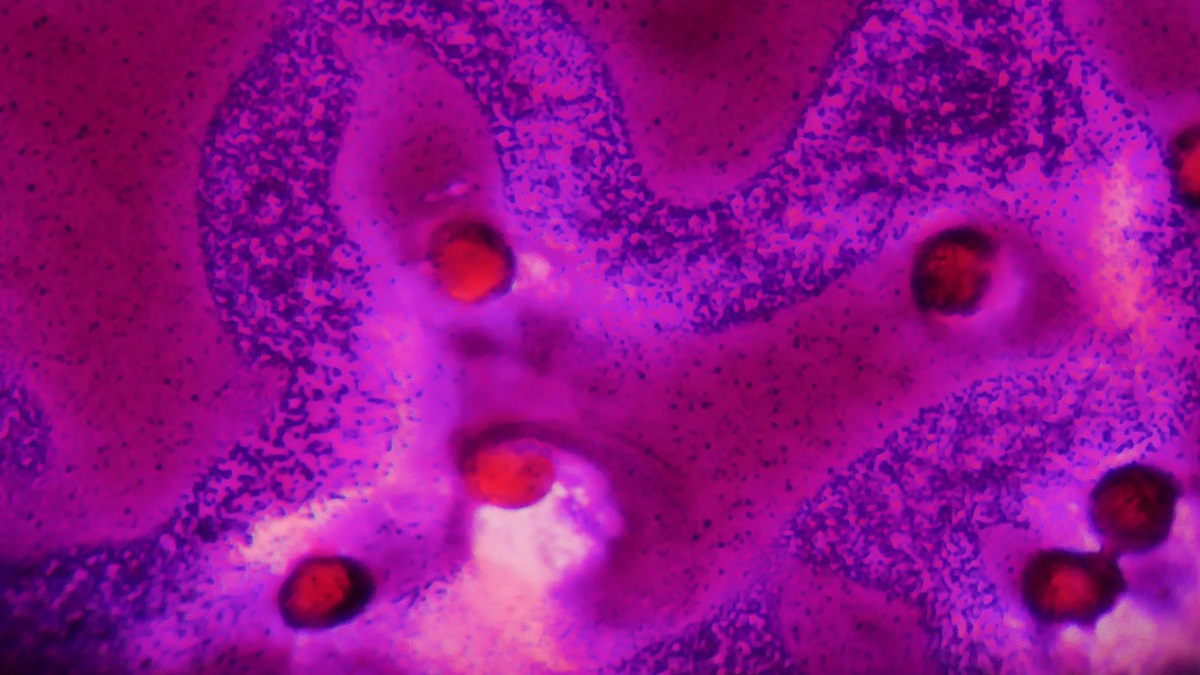KEY TAKEAWAYS
- The AMBASSADOR study, phase 3 trial, aimed to investigate the efficacy of pembro as adjuvant therapy post-surgical resection in high-risk MIUC pts.
- The primary endpoints were to determine DFS and OS.
- Researchers noticed a significant improvement in DFS with adjuvant pembro over obs in high-risk MIUC pts; further information will be provided later.
Muscle-invasive urothelial carcinoma (MIUC) presents a formidable clinical challenge characterized by its aggressive nature and propensity for high relapse rates. The established standard of care involves neoadjuvant platinum-based chemotherapy (NAC), primarily in patients (pts) eligible for cisplatin (Cis). However, a considerable subset of pts is deemed Cis-ineligible or experiences persistent muscle-invasive disease following NAC and subsequent surgery.
Andrea B. Apolo and her team aimed to address the limitations in the current treatment paradigm by evaluating the potential of pembrolizumab (pembro) as adjuvant therapy for pts with high-risk MIUC following surgical resection.
Researchers performed an inclusive analysis as part of the AMBASSADOR study, an open-label, randomized, phase III trial. The study enrolled pts with histologically confirmed MIUC in the bladder, upper tract, or urethra. Eligible participants either exhibited ≥ pT2 and/or pN+ or margins+ at surgery after NAC or (2) ≥ pT3 and/or pN+ or margins+ at surgery without NAC, being either cisplatin (Cis)-ineligible or choosing to forego adjuvant Cis-based therapy. Registration occurred within ≥4 to 16 weeks post-surgery, with a 1:1 randomization to receive pembro at 200 mg every 3 weeks for 1 year or observation (Obs) .
Randomization was stratified based on pathologic stage, centrally tested PD-L1 status, and prior NAC. The study’s dual primary endpoints were disease-free survival (DFS) and overall survival (OS), aiming for a target sample size of 739 pts. Final analysis required 387 DFS and 320 OS events. Secondary objectives included assessing DFS and OS in PD-L1-positive and -negative pts, along with safety evaluations. The interim results presented herein contribute to the ongoing understanding of the trial’s outcomes.
About 702 pts were randomized between 09/2017 and 08/2021 before early closure, prompted by the US FDA approval of nivolumab for MIUC pts. Of these, 354 pts were allocated to receive pembro, while 348 were assigned to Obs. A total of 13.0% and 21.6% withdrew from the study without an event in the Pembro and Obs arms, respectively. Notably, 74 pts (21%) in the Obs arm received an immune checkpoint inhibitor.
The median follow-up was 22.3 months for DFS and 36.9 months for OS. For DFS, based on 319 events needed for interim analysis, the efficacy boundary was crossed. The median DFS was 29.0 months (95% CI 21.8‒not evaluable [NE]) with Pembro compared to 14.0 months (95% CI 9.7‒20.20) with Obs. The HR was 0.69 (95% CI 0.55–0.87), demonstrating a statistically significant improvement with Pembro (p=0.0013).
In the interim analysis (n = 257 events) for OS, the median was 50.9 months (95% CI 43.9‒NE) with Pembro and 55.8 months (95% CI 53.3‒NE) with Obs. The HR for OS was 0.98 (95% CI 0.76–1.26), indicating no statistically significant difference between the two arms (p=0.88). Grade 3+ adverse events occurred in 48.4% of pts in the Pembro arm compared to 31.8% in the Obs arm.
The study concluded that adjuvant pembro demonstrated a statistically significant and clinically meaningful improvement in DFS compared to obs for high-risk MIUC pts following radical surgery. The observed impact on overall survival (OS) may be influenced by pts in the obs arm receiving a checkpoint inhibitor. Pembro was well-tolerated, showing no new safety signals. These compelling results support the consideration of adjuvant pembro as a new therapeutic option for MIUC pts at high risk for recurrence. Ongoing additional follow-up will provide insights into the final outcomes for DFS and OS and specific analyses related to PD-L1 subgroups and circulating tumor DNA (ctDNA).
The study is sponsored by National Cancer Institute (NCI)
Source: https://meetings.asco.org/abstracts-presentations/229702
Clinical Trial: https://clinicaltrials.gov/study/NCT03244384
Apolo A B, Ballman K V, Sonpavde G P, et al. (2023). “AMBASSADOR Alliance A031501: Phase III randomized adjuvant study of pembrolizumab in muscle-invasive and locally advanced urothelial carcinoma (MIUC) vs observation.” Presented at ASCO-GU 2024 (Abstract LBA531).



